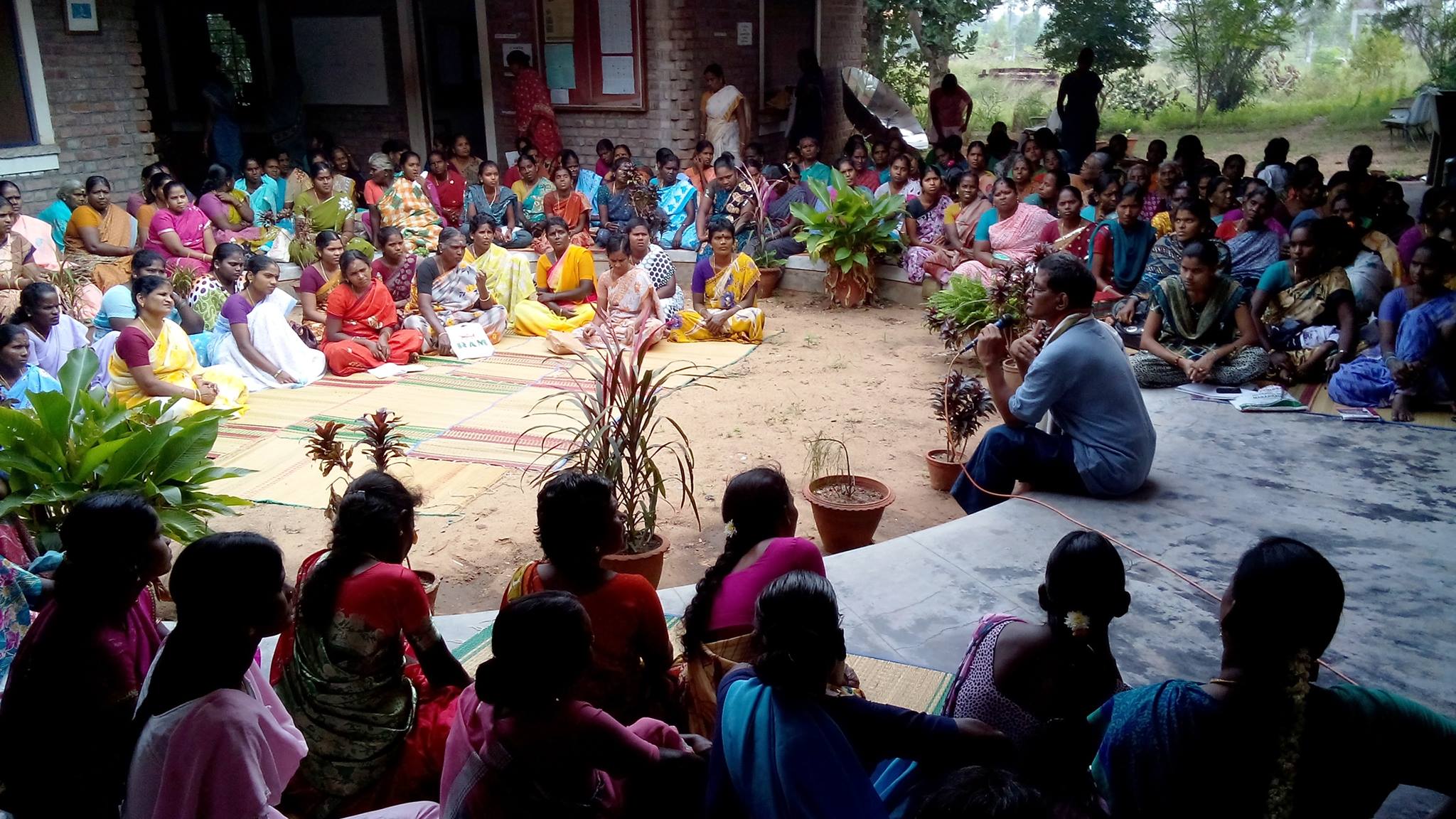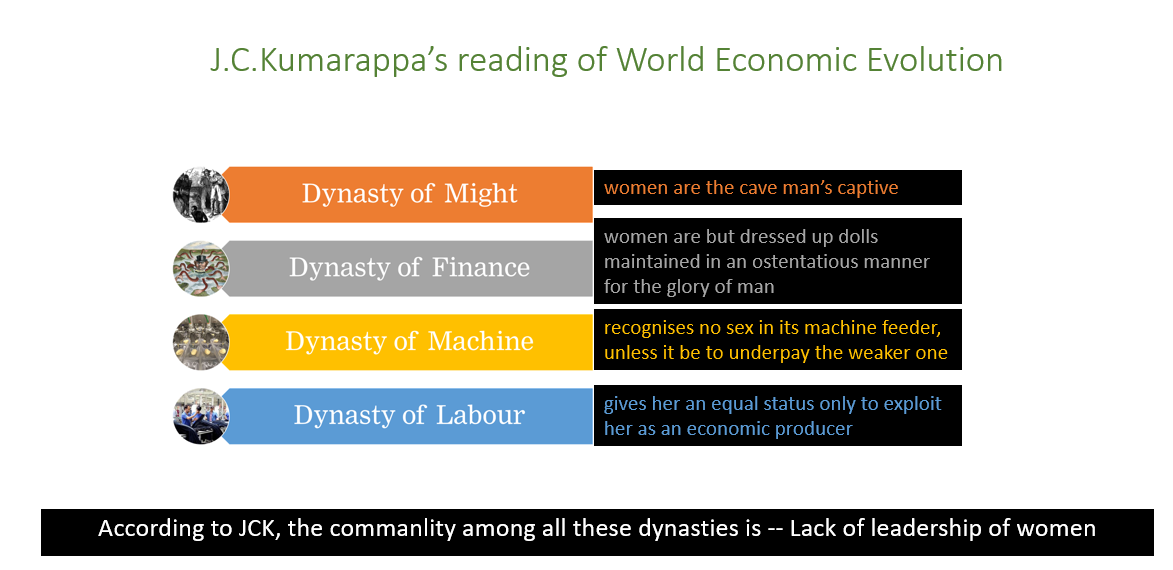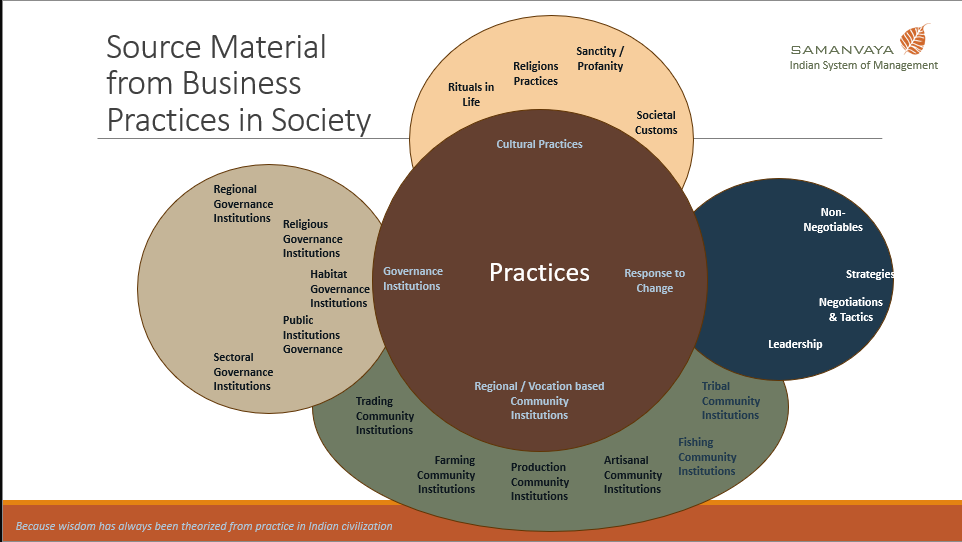
My conviction that women leadership is what will change the world has gained strengths repeatedly through my reading of Gandhi and JC Kumarappa as well as the interactions I have had with several thought leaders. I have interacted, spoken to, conducted workshops with, sat in meetings, with thousands of rural Indian women over the past 30 years of being in the change making space. I can today say with complete conviction that if the world has to transition into the space of safe planet, India has to nurture more and more of women in roles and spaces of leadership.

Economically, JC Kumarappa said it better than anyone else. In his reading and presentation of how the economic evolution of the world (he speaks of it in 4 stages of physical might, finance, technology and labour) took place, he points out the lack of dignity, respect and leadership of women as a common feature across stages of evolution. Gandhi facilitated the emergence of some of the most impactful women leaders in India during his time. They built institutions, made social changes and have been responsible for generations of women leaders emerging since.
In my own engagement with the rural village women all over Tamil Nadu (the state I have extensively travelled to interior villages) and other states as well, every exchange has been filled with hope and promise. There are several things that I observe about women (particularly rural) in leadership position that are lacking in the other gender leaders -
- time taken between learning something new and trying it out is less: women tend to adopt faster than men, not just for the betterment of themselves, but, the whole community as well
- time taken to discard ideas is also less: if they think something will not work, they are not trying it; this is clear with women in positions of power. they don't try things for the sake of vanity or satisfying some higher up
- they use silence effectively in disagreements: in the face of power that is imposing a useless idea or practice, they stay silent in their cooperation or disengage, waiting for an opportunity to drop things, but maintain silent protest throughout. yes, they need to be empowered in such cases, but, yes, that is not a reality everywhere all the time either
- they share the learnings freely: in villages the sharing community spaces have slowly been eroded for men, thankfully women still retain some of the spaces and use it effectively
- positive peer pressure: everyone grows when someone grows, there is a positive peer pressure, SHG movement has captured it quite effectively and I am certain that the same will happen
They hold within themselves the essentials of the civilizational wisdom that is manifested as cultural ethos and community care. The only challenge I have found with women is that often they are intimidated by the supposedly well meaning Educated, System based and Market economy rooted individuals and practices. The women leaders do not have the time to sit and theorize their wisdom into a knowledge and concepts.
It is not as though this is restricted to India, in 2017, during my long interactions with several Native American leaders, I remember this one with Chief Perry of Lenape land -

The entire dialogue, is available as an article in this website.
So, when I wanted to offer a programme on Indian System of Management after almost a decade and half, my first impulse was to offer the same to women leaders. In March this year, I had a meeting with Swami Mahamedhanandaji of RIMSE, Mysuru (a remarkable institution which I first visited as a youth for a national youth camp facilitated by the highly impactful late Gandhian S.N. Subbarao) and he had offered the space end of May to do this programme. So, I am looking forward to this programme coming up end of the month.

Harmony Management workshop is special for me, it is the programme that combines my 3 decades of work experience and gives me an opportunity to pull together my various experiences into a single workshop. Management education in India is under major crisis as it prepares students for careers which cannot accommodate them and leaves them deprived of tools that are necessary to operate in the available careers. I had briefly touched upon this in the introductory writing for the workshop here, but will write more in the coming days. With over 15 lakh students every year going through management education (both BBA and MBA) with less than 20% of their prescribed concepts and case studies coming from Indian context. Even that material is primarily to do with the accounting compliance rather than anything conceptual.
In the 90s when we had started together a movement to resist and put together a body of knowledge called Indian System of Management (ISM), many of us, including myself, were limited by in our Indian knowledge understanding as derived from scriptures / literature, and most of us were primarily English language dependent. Which meant we were utilizing the english language interpretation or published scriptural knowledge for our interpretation of Indian management concepts. This had several limitations, primary of which being that the Indic wisdom when translated by colonials into English often imbibed their biases and prejudices about Indian society and if they found a language inadequate, they used the adjacent meaning words in english to present the concept. Thankfully, I graduated to the Dharampal school of non-Eurocentric learning in the 2000s, initially working with the late gandhian directly and later with one of his principle disciples and an amazing teacher Dr. Claude Alvares. It helped me to de-construct these and look deeper into the vernacular literature and practices. 
The subsequent decade working with the women's groups across the rural landscape on shaping livelihoods and rural enterprises has provided me with the wherewithal of vernacular concepts and practices that are in sync with the world view of India and which is a rich tapestry of diverse sources for management curriculum. Unfortunately, it requires a diverse understanding, reading and experiencing through interaction with the communities that not many have.
I have been putting together the notes for this upcoming workshop and a smaller workshop with a limited audience last month helped me to also tune the content to meet the expectations of the audience. In the coming days I will be sharing several aspects of the programme in smaller doses.
Do please share the details of the programme and look at enrolling young women executives or entrepreneurs who are seeking answers beyond what is dished out by the roll in the mill academia. This will help them to deepen their intuitive learning and provide them with the frameworks, and tools for manifesting a better culture of an economy.
Registration link is here -https://forms.office.com/r/kkQMuuFCCW
Looking forward.
Add new comment